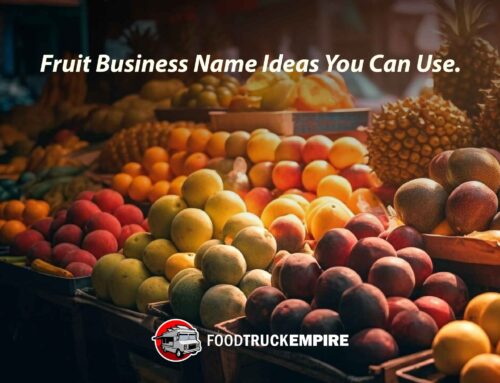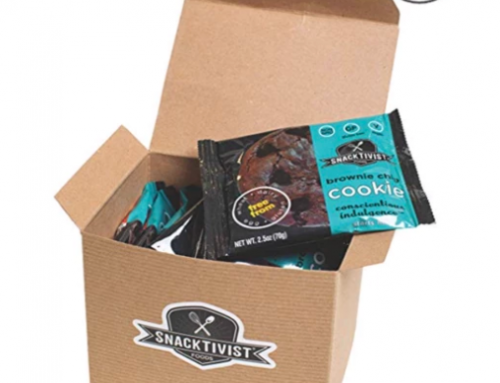Thinking about using a co-packer, but aren’t sure if you’re ready? There are clear benchmarks to identify if you’re prepared to take the next step… or not.
At the end of the day, whether or not to work with a co-packer is a business decision. There’s got to be a tangible business benefit for you to do it. Some good reasons to add a co-packer: Could it save you money? Could it help you meet an ever growing demand for the product? You’ll need to be the judge and jury on whether the reasons are legit.
Here are a the reasons when it makes sense to add a co-packer based on my own experience starting three different food brands and working with my own . By the way, you can check out The Complete Guide to Profitable Co-Packing for free here.
1. Demand is just too big for your home kitchen

You can only scale your production so far in the home kitchen.
If you can start out in your home kitchen, start there. It’s easy to get off the ground. You have low overhead (since you own your house). Plus, consumers are loving the handcrafted, smallbatch movement. Only when you make something in your house can you call it “homemade”.
But sometimes, consumer demand goes beyond your stovetopand out of your single oven.
First of all, congrats! It’s a big move to get out of the house. I’ve done it with one of three companies. It’s scary, fun, exhilarating, and absolutely terrifying at the same time. Plus, growing a food business is tough when you’re competing with over 120,000 other products in the grocery store. This is a huge milestone. Congratulations!
Ok, let’s get serious… What does that mean for your little food biz?
You need to produce in larger quantities. And that means leaving the kitchen you’ve called home for the past year or two. That means you’ve got to look at other options in your area. One of those options is copacking. As you work through this guide you’ll learn if copacking is the right decision for you.
2. You need to abide by state laws
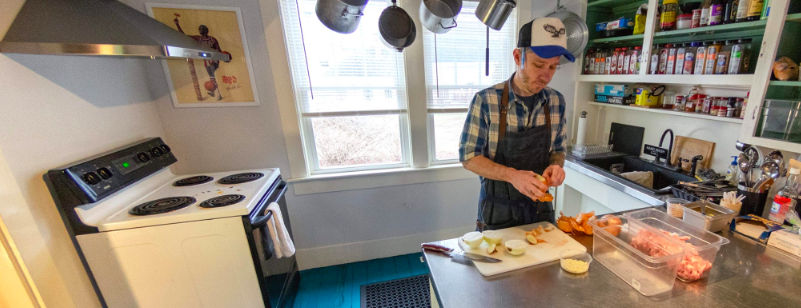
Following rules… A great reason to move to a co-packing facility.
Not everyone has the luxury of starting their food business from their home kitchen. Only 14 states have the right to preheat their stoves. And even then, they may only be able to produce baked goods not a process food like mustard, BBQ sauce, or marinades. Consider yourself lucky.
What laws are there to abide by?
- FDA inspected facility
- Food Safety Modernization Act
- USDA Laws & Regulations (only if you handle raw meat products)
- Third Party Audit Certification needed if you want to sell to Whole Foods)
And that’s just a short list. These laws force people to manufacture outside their home. It dramatically increases startup costs, but it’s the same reason many states lack smallbatch goodies it’s simply too expensive to start.
I know, it’s unfortunate many Americans haven’t experienced the creativity of small food companies.If you’re in a state where home bakeries and processing isn’t permitted, look into leasing commercial kitchen space to get started. You should only look at copacking when you have the demand to sustain it (see #1).
3. You’d rather sell your product
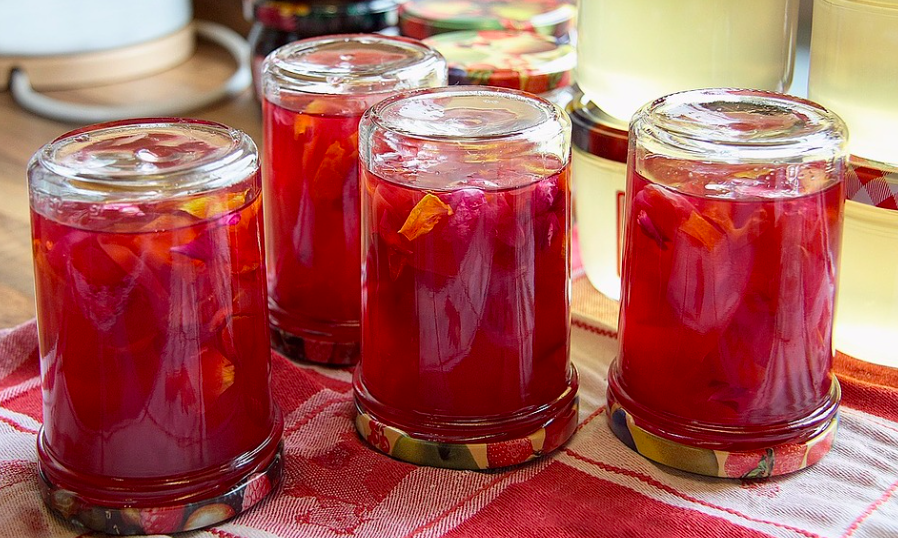
Making more time to sell and build relationships with retailers is smart.
Let’s face it. Being stuck in a kitchen leaning over a 190 degree kettle isn’t glamorous. You smell like your product, machines break, and you never get around to doing anything else. That means limited selling, networking, and business development.
If you have limited time to sell, you have limited time to build your business.
It’s a harsh reality of the food industry. Many small food producers are stuck making their product and don’t have time to sell it and build a business. Sure, you could outsource the sales function, but nobody sells your product better than you do. That’s why co-packing can be a smart move.
You Might Like This: How I Started a $150K/Month Tahini Paste Company
Co-packing gives you the flexibility to be the sales person you want to be. Want to build a hot sauce empire? You’ve got the time now. Want to be represented by distributors across the country? You’ve got the time.
Remember, the only way you’ll stay in business is if you can move enough cases of your products to be profitable. And to do that, you may need to let other people manage certain parts of your business.
Plus, moving more product means you’re growing your business. And that means you can quit that pesky fulltime job of yours. Oh, and speaking of jobs…
4. You work fulltime and need someone else to make the product

Starting a business while still employed and getting a steady paycheck is smart.
Working 50 – 60 hours a week on top of slaving over a stove to make jam is not an ideal worklife balance. Things can get crazy pretty fast long nights, equipment breaking, you know the deal.
Many of you need to have another income to support your dream of running a food business.
Just like you, I worked fulltime while growing my company. Yes, it inhibited growth for a few years, but I needed to support myself. As I grew my company, the after work hours weren’t enough to meet demand. I needed a change.
Related Reading: Atlas Bars: How I Sold Over 1 Million Protein Bars
That’s when I turned to co-packing. If I could have someone else make my product with my oversight, I could devote my afterwork and weekends hours to building a business. You can do the same thing!
If you’re exhausted from working full-time, plus running a part-time food business, think about copacking. Trust me, the first run will totally be worth it.
Think about it: no more chopping produce, no more smelling like your product for days, and my personal favorite no more capping. That’s what you pay someone else to do. Assuming you have the money to pay for a co-packer (which is more likely if you have a full-time job), it’s worth it’s weight in gold to build your dream while someone else manufacturers your product.
Once you establish a relationship with your co-packer, and you’re ready to leave your full-time job, you’ll have TONS of time for sales, meeting with new retailers, doing store demos, etc. This is the ideal situation. That is, of course, if you like sales and marketing! If you don’t, keep making your product and hire an outside sales team. But, that’s a whole other book in its own right!
5. You can’t find your own kitchen space.
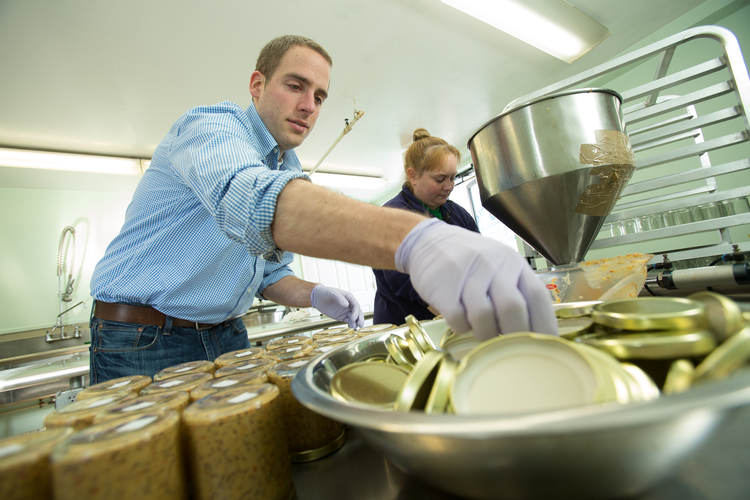
Yes… that’s really me on the production floor bottling mustard.
Finding kitchen space is flat out hard. No one has to tell you that. Some companies search for kitchen space for years. Whether you’re looking for the perfect co-packer, a shared kitchen to help you grow, or a restaurant kitchen to rent, you may never find kitchen space.
And not to mention the possibility of your own kitchen space that’s just plain expensive, time consuming, and from other producers I’ve talked to, quite the nightmare. What this comes down to is you need a place to make your product.
You can’t go too long without producing, right? This means you need to find a kitchen to quickly meet demand. That really means copacking is one of the best solutions. Here’s a couple reasons why:
- If you have recipes ready, co-packers can ramp up quickly
- You can often produce what you need, when you need it
- It may, financially, be a better move for your company (no multiyear lease to deal with)
- Buying equipment to better fit your co-packer is better than buying the whole kitchen.
- (I’ll reiterate this one) You have time for sales!
Kitchen searching requires you to be flexible. If you’re looking for a kitchen and things aren’t panning out, look at your requirements. Maybe you don’t need that much storage space. Maybe you don’t need an enormous bottling line.
You may have to sacrifice a few things to find the perfect kitchen. But always keep a co-packer in mind when something’s just not working for you.
Get Started: Download My Food Business Model Canvas with Template
What it comes down to is this:
You need to find the manufacturing solution that works best for you and your company.If that’s producing by yourself, keep doing that. If that’s choosing to have someone else produce for you that works, too. Take time to weigh your options. Talk to friends, family, other food producers, business advisors, etc. Get everyone’s opinion. But remember, it’s ultimately your decision.
The rest of this guide assumes you’ve taken the plunge to search for and work with a co-packer to produce your product. Even if you’d still like to produce in your own kitchen, I urge you to read the rest of the guide. It may shed light on some problems you’ve been having in your own production or spark ideas to adapt for your own business.
Have you determined your ready to work with a co-packer? Pop open a bottle of champagne. That’s awesome!
Seriously, though it’s a big decision. Congrats! It also means your company is growing. Typically, companies choose co-packing when demand for their product increases to a point they can’t handle it anymore.
Let’s get right to it then, shall we? In the next lesson, I’ll reveal how to evaluate and select the right co-packing partner.


